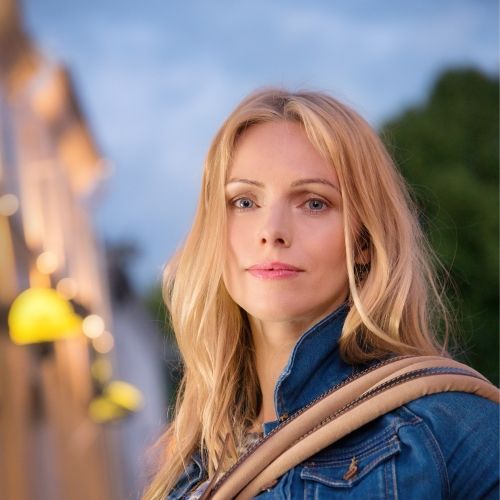
Bio
Kristiina Ehin is a leading Estonian poet. She has published a number of books in English translation, including the Poetry Society Popescu Prize winner The Drums of Silence (Oleander) and the Poetry Book Society Recommended Translation The Scent of Your Shadow (Arc). 1001 Winters (Bitter Oleander) was shortlisted for the Popescu Prize. Her most recent book in English translation is On the Edge of a Sword (Arc). Her work has appeared in leading English language literary magazines such as Modern Poetry in Translation, Poetry Wales, Poetry Ireland Review, Poetry Review, Cyphers, Orbis, The Stinging Fly, Crannóg and The Bitter Oleander, as well as in the Bloodaxe anthologies Centres of Cataclysm, The World Record and HWAET!. In addition to English, her work has been translated into at least twenty languages. Kristiina is also an esteemed singer-songwriter and a member of the contemporary folk group Naised Köögis. Photograph by Kaari Saarma.

Translator Bio
Ilmar Lehtpere
ILMAR LEHTPERE is an Estonian poet and Kristiina Ehin's English language translator. He has also translated poetry by Ly Seppel, Andres Ehin, Livia Viitol, Mathura, Doris Kareva and others into English, and Welsh poet Laura Fisk's work into Estonian. Wandering Towards Dawn (Lapwing) is a selection of Sadie Murphy's poetry as well as English versions of his own work. His poetry has also been translated into Irish, Macedonian and Romanian. Photograph by Alar Madisson.
What are the ecological / social crises within your region / country?
Many Estonians living abroad say that what they miss most about Estonia is the Estonian countryside – our deep forests that cover half the country, our bogland paths, our clear lakes, our sublime meadows and gently sloping hills reaching out to the horizon. These hills of course aren't really hills in the conventional understanding of the word, but rather knolls and hillocks, yet for us they signify the variety of nature. Every hillock has its own name, every cove and lake its own story, and all these natural places are interwoven with mythology which is easily accessible to anyone with even the slightest interest. Those with a wish for deeper understanding can visit our Folklore Archives, which are among the world's largest, and look into the toponymy and place name traditions. That is the beautiful side of the story. The sad side is that it is all beginning to disappear. Slowly, it's true, for climate change hasn't really made itself felt here yet – summer temperatures are still usually between 18 and 25 degrees, seldom higher. Yet every thinking person knows where the current is taking us and isn't influenced by right-wing populist politicians who deny the existence of the climate crisis. We are fighting – fighting for the clean rivers and lakes of our childhood, for our forests. Not a week goes by without a report in the media of some new battle in which local people are defending their land and the beauty of their place, the natural purity of their countryside, against the construction of some road, or the clear felling of trees. The people of Tartu were victorious in their fight against the construction of a massive cellulose factory ten kilometres from Tartu on the banks of our most important river. This university town successfully defended itself in court against the State and the interests of big business. We won, thereby also giving hope to others in their struggles.